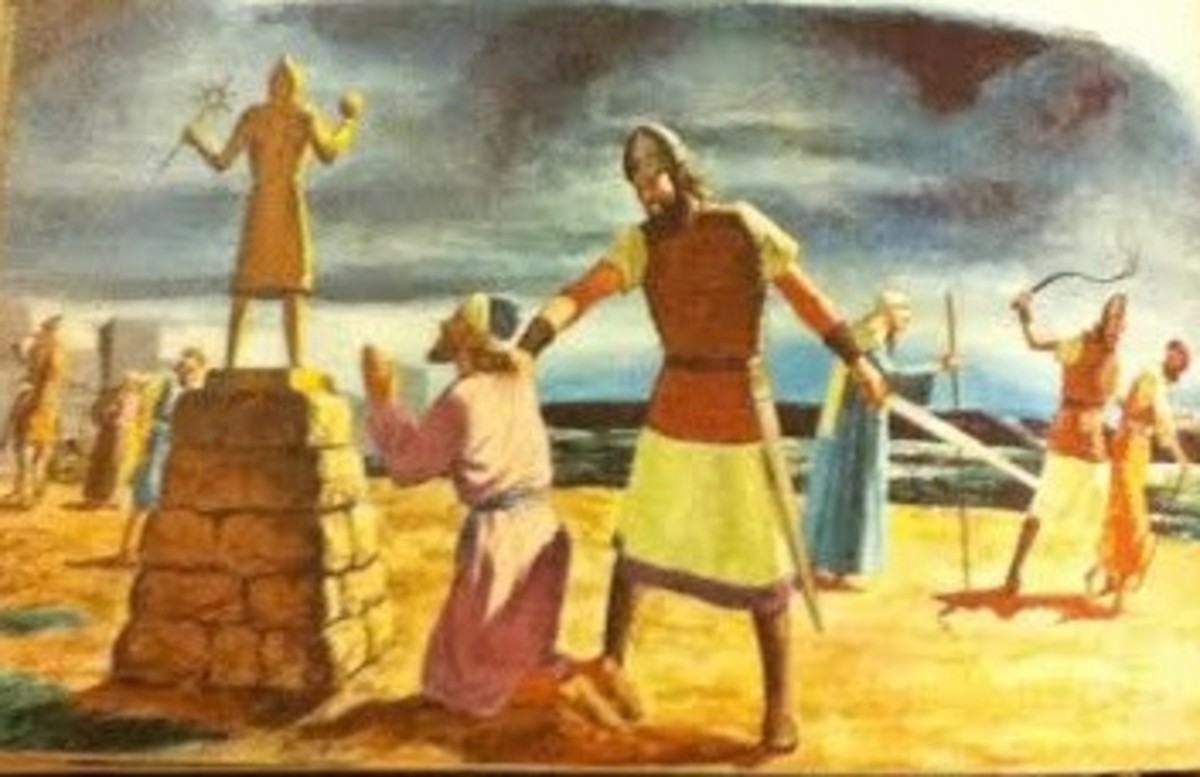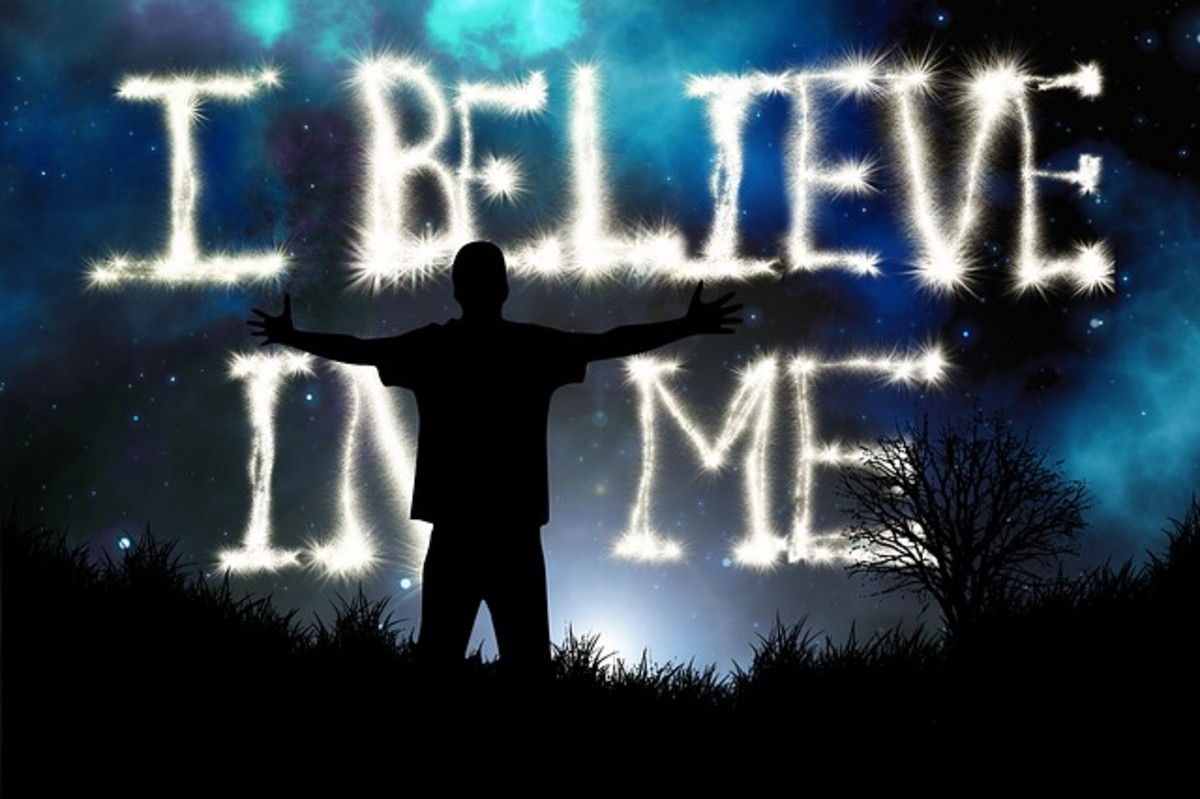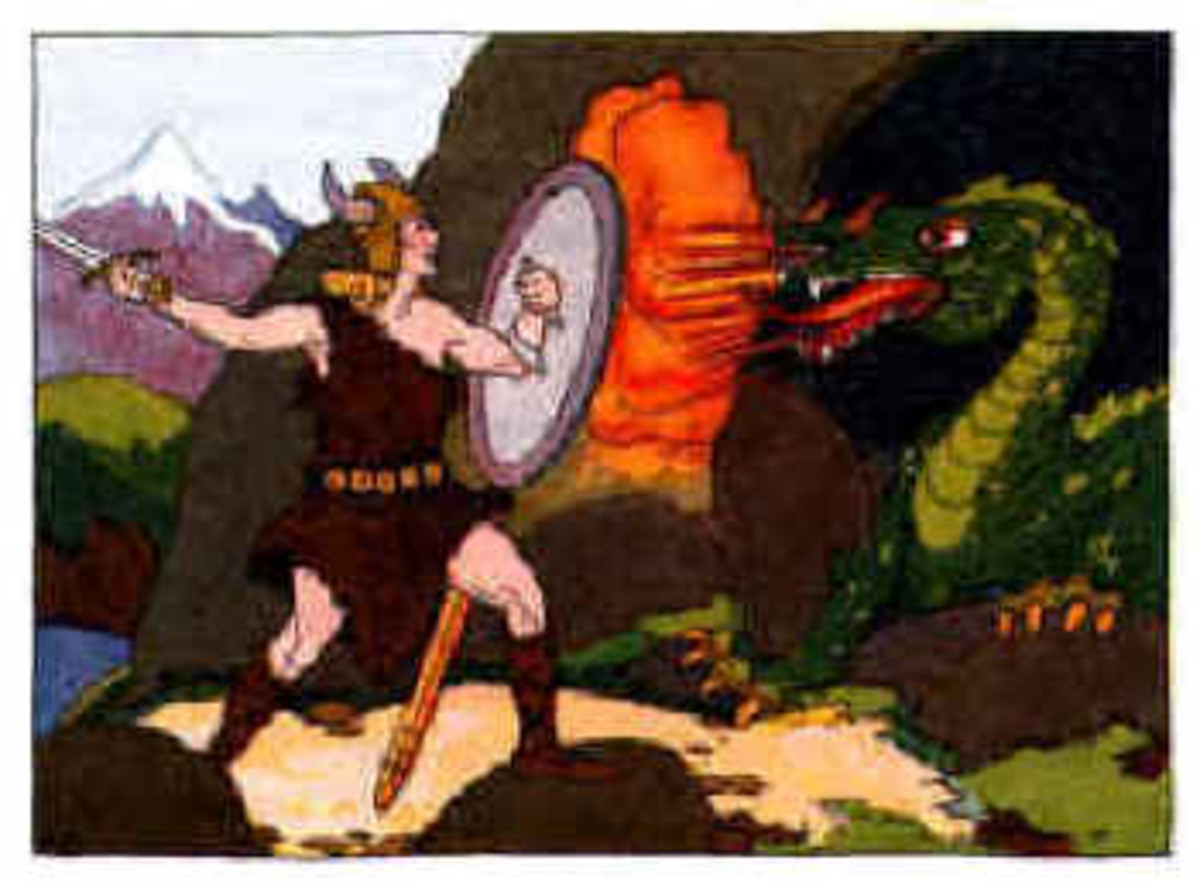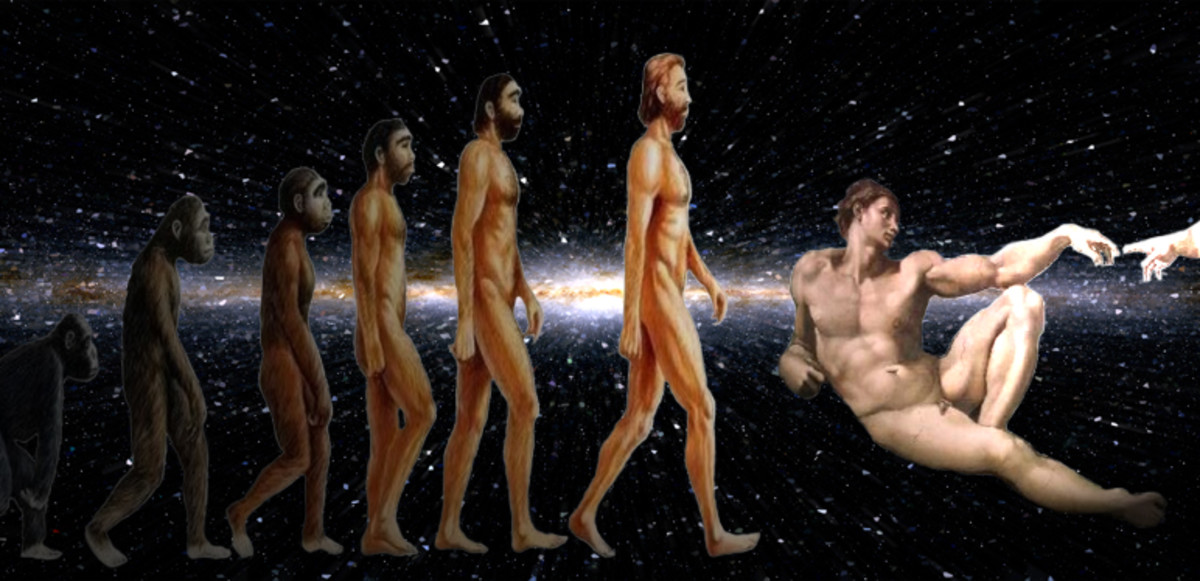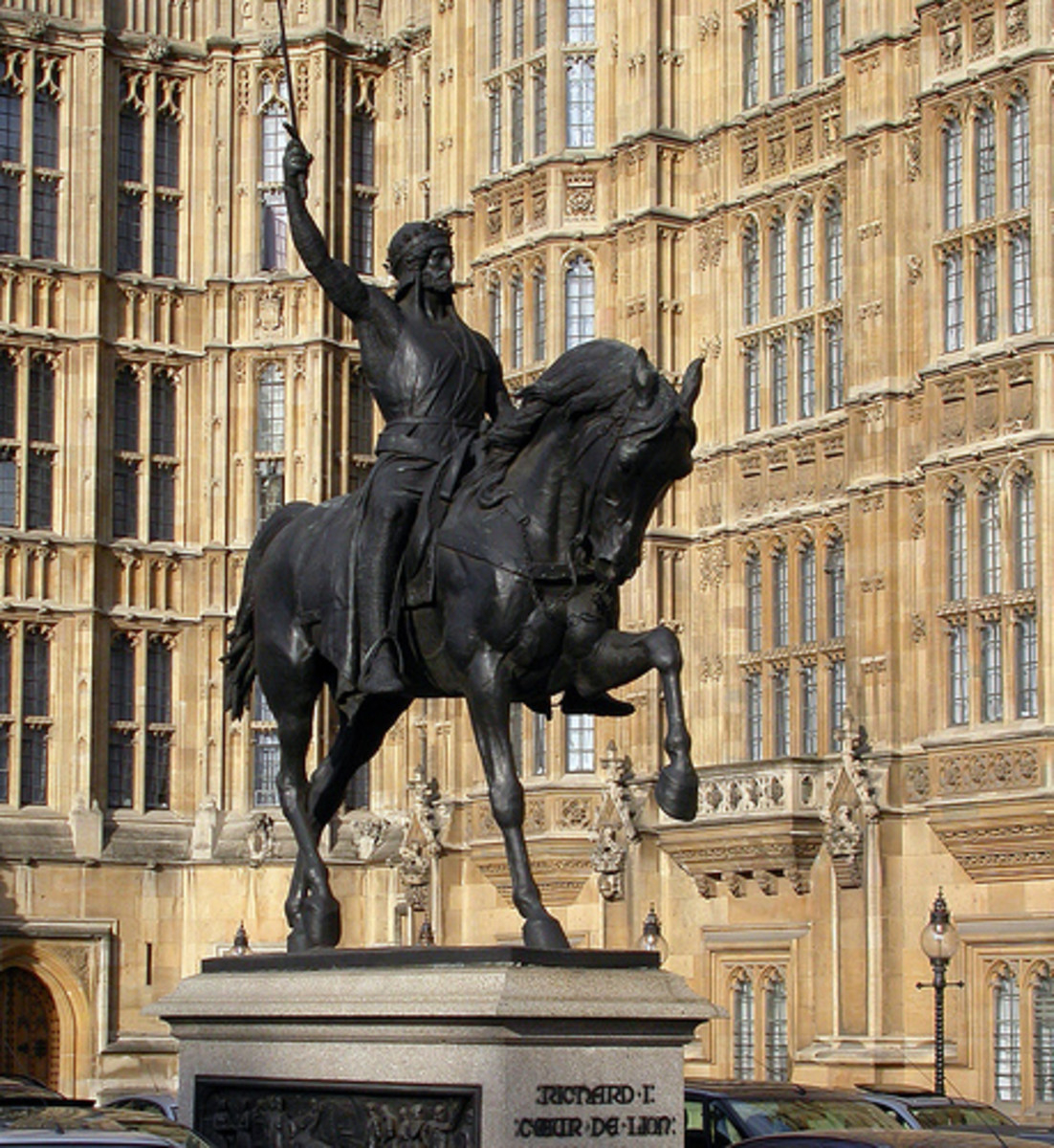Mysteries of Christianity: A Tale of Two Selves
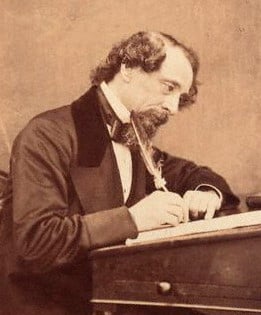
Within you, there are two of you. One is awake and active; the other is asleep, and has remained that way for countless eons. One is mortal, vulnerable and temporary; the other is immortal and a child of God.
We sometimes feel the presence of this second, immortal self when we are inspired, or when we have an epiphany. Very rarely does this second self awaken, even if only for a moment. But this can happen in moments of danger and stress—when we give up and give in to God, placing our lives in His loving hands.
This seems to have happened when a parachutist fell out of his airplane, but his chute would not open. On the way down to the ground, he gave up any chance of survival and turned to God in what he thought would be the last moments of his life. And yet moments later, he walked away with only a few scratches. On another day, full of pride, he rode in an airplane vowing to duplicate his death-defying feat. This time he did not make it. The difference between the two events proved to be as great as night and day—the difference between the vulnerable cog of physical reality, ego, and the invulnerable and immortal child of God, within. In this case, pride indeed came before a very great fall.
Read the Book that Changes Everything

We feel this second self when we admire a hero. We feel the awkward difference between these two selves when a hero is found to be tarnished with some imperfection, such as that of taking drugs, theft, dishonesty, cruelty or infidelity. And yet, paradoxically, we frequently (though not always) feel the first, mortal self (ego), when we want to be like the hero. It depends on our motivation for wanting to be like the hero. And this is where the difference between the two selves becomes difficult for many to tell.
We feel this second self when we exercise true forgiveness. Saying that we forgive does not automatically make it so. True forgiveness breaks with the bonds that tie us to past, perceived injustices—breaks them cleanly and completely.
A friend of mine once told me all about her alcoholic mother and how that alcoholism had created hardship for herself and her siblings. She said that she forgave her mother, but could not forget. And she repeated her complaint over a period of several years. That is not forgiveness. She was still tied-down by the ball-and-chain of resentment.
Forgiveness releases all ties. With forgiveness, one is never bothered by resentment on that subject ever again.
If a monster rapes and kills your child, forgiveness seems very difficult. The last thing on one's mind is gratitude. And yet, we need to be grateful—not to the monster and their evil state of mind, or even to the horrific act itself, but to God and all the challenges we receive in life by his grace. Being victim (or perpetrator) is not heroic. Being able to forgive completely is every bit heroic.
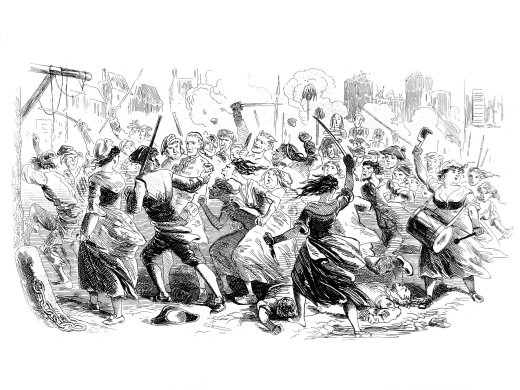
The Nature of Heroism
The hero is humble (not arrogant), generous (unselfish), and responsible.
One of the things we admire about them is their humility. Any hero who starts bragging about their deeds and how good they are, suddenly loses the shine on their badge of courage.
We also admire their generosity. Any hero who takes great riches for their deeds and spends it lavishly on themselves is instantly suspected. Did they have a hidden motive in what they did? Are they really a hero?
And we admire that they take responsibility. Without such an attitude, the supposed hero would not put his compassion into action. In fact, one could say that compassion is action, for without implementation compassion looks too much like deadly sympathy.
Why does admiration of heroes seem so natural? Perhaps we recognize in heroism the lessening of ego. Pride has the opposite effect. Conceit goes even further to burst the love affair bubble.
Charles Dickens gives us an example of such superlative heroism in his bestselling book, Tale of Two Cities. Sydney Carton, who had lived a selfish and shallow life until now, takes the place of his look-alike, Darnay, under the guillotine. The story ends with Carton’s last thoughts, "It is a far, far better thing that I do, than I have ever done; it is a far, far better rest that I go to, than I have ever known." Would you do such a thing—perform such self-sacrifice for another? Carton's actions provoke from the reader either bewilderment or deep admiration. His was an act of profound heroism.
Jesus of Nazareth told his disciples, "Greater love hath no man than this, that a man lay down his life for his friends" (John 15:13). This is the ultimate self-sacrifice, and that is exactly what Jesus did when he knowingly walked into his own crucifixion.
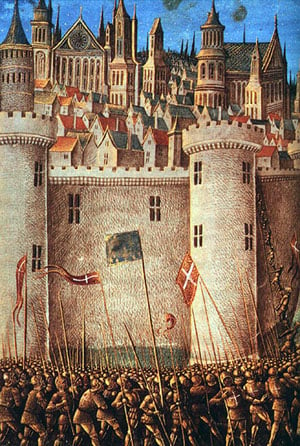
The War Within
A very ancient war has been fought. The aim has been to recapture the kingdom from the forces of evil. Sound like a Hollywood movie? It could be, but it isn't.
I'm talking about the immortal children of God who, in a moment of curiosity and weakness, decided to see what it was like to know the dichotomies of continuity-based physical existence. What the heck does that mean? Let me explain.
Perhaps you have heard of the Garden of Eden. In that Garden, according to Genesis (first book of the Bible), stood a tree of knowledge of good and evil. The fruit of that tree killed Adam and Eve instantly—not physically, but spiritually.
Good and evil give us one of the most talked-about dichotomies, and there are others—wisdom-stupidity, compassion-indifference, generosity-selfishness, victim-perpetrator and many more. These are the fibers and poison of that Forbidden Fruit. These are the forces which lock the non-physical, spiritual and immortal children of God into this mortal realm.
Ego wants us to think that we are ego. It seduces us with the lure of being right and the satisfaction of making others wrong. Ego takes credit for being good and justifies being evil. Ego is self-important.
The only way for the immortal child of God to escape—to awaken from their perpetual nightmare—is to perfect the art of humility and fearless confidence.
Confidence with humility awakens the true self, within. Confidence with self-importance drives the true self deeper into its catatonic state. Humility is the antidote to ego.
So many Christians I've talked with simply don't get it. Their view of Christianity is the right way, and damned be those who disagree. One popular Hubber from New York has one such tainted idea of Christianity. It seems full of ego, arrogance and judgment. She said that the Bible gave her license to judge others for their evil. How many forgotten passages did she exclude from that line of reasoning?
I gave her my love, and stated my reasoning. She returned only venom and disdain. I turned and left.
I should not judge her—not even Adolph Hitler, Joseph Stalin or Pol Pot. Resenting what they do solves nothing. Trying to save the incorrigible egotist is a waste of time, but we can still have compassion and love for them. One day, they may see the light of love and harmony.
One day, they may forego the darker, master of the physical realm, ego, and find the true self—the immortal child of God, within.



